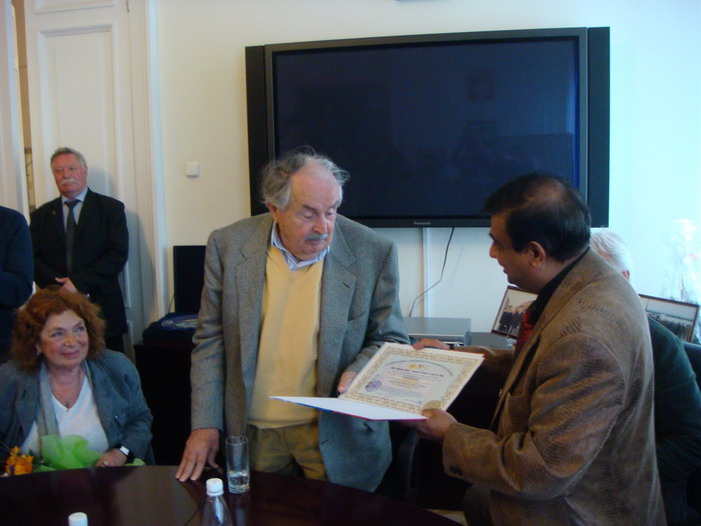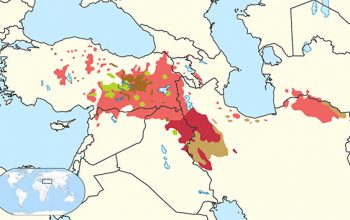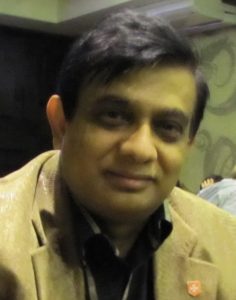
Prof. Jayasekera Santhi (Mahatma Shanti), PhD, Grand PhD.
Recognition is an amazing phenomenon of public opinion expression. It is a response to the outstanding activities of a person, his merits and achievements.
Recognition crowns fame and determines the duration of communication with an author regardless of the time of his actual existence. The chosen by fame are paid bonuses, awarded, stand out on the screens, magazine covers.
But there is a more modest but lasting recognition – a memory. The memory of actions, thoughts, all that remains in the inheritance.
Cultural heritage retains author’s individuality, coming in a common human collection of world art, in its spiritual treasury. Contribution of a worthy creator or artist can be either a standard product or an incentive of improvement of followers’ activities.
Cultural heritage like a gift of nature: sunlight, spring water, gentle sea breeze –people, it is all yours, enjoy the benefit.
Recently departed this life, Tonino Guerra, just a moment in time – left us a rich and inspired heritage of his work.
In Russia he is known as a writer, as one of the brightest members of becoming a new trend in Italian film industry, which had an impact on the film world as a whole.
But Guerra is primarily a poet. And you can be sure that he will still give a joy of communication fellowship with him to connoisseurs and lovers of poetry.
Definitely poetry, because no matter how his work in cinematography is expressed, in general in literature, painting and communication – anytime and anywhere you will find lyrical beginning, melodies of poetry and beauty of thought. And yet, or, above all, love for people and all his surroundings.
He is a philosopher, he discovers and explains the laws of life. His philosophy is clear and simple in its presentation, and deep in content, meaning. Meditation, philosophical reflections, his own vision of everyday life is always present in his work.
Guerra describes and talks about things and people who are known best of all. He tells Russians about St. Petersburg and Moscow, about Kizhi, but he says something new and significant that Russians adopt.
Having a skill to present modern and exciting, Guerra talks about his friends Ulysses and Penelope, and about Hellas.
He reveals us Italy, opens up the world he sees – and we accept his discoveries. No officialese and patterns, you can hear a sincere voice of Guerra: “We need to shout Big words that will reach the heart of every person. The words, full of living water for people, animals and plants, which will revive the gestures of hands, frozen without work; the words, full of attention to a desperate childhood”.
And the life Tonino Guerra began naturally and normally, in a poor family in a small town.
Childhood flashed quickly, but imprinted in the mind. Great Duce, great Italy, and then a rout.
And for Guerra – captivity. And finally, a peaceful life, University – education and knowledge.
“It was able to learn,
Only thanks to my mother,
She put a cross in the place
Where the name is usually written in words“.
Yes, his mother was illiterate, and from his father’s side, the workers. “My grandfather laid bricks, my father built walls, and I lay bricks and built walls”. He sadly finishes this poem: “But still I have not built a house for myself”. Let us not agree with the poet: Tonino Guerra built a house. Built for himself and for many connoisseurs of nor pretentious or contrived poetry. Yes, and Guerra once confessed: “My house stands so high that you can hear the cough of God”.
His first collection of poems, on paper was seen in 1946, then came out a few books of poetry. He published poems in the nineties, too, and in fact had been composing all his life, combining prose and poetry. He has published more than ten novels and plays, and collections.
And Guerra enriched cinema by presenting more than one hundred scenarios. Hundreds of articles are written about his literary works, reviews, and findings. His work has been studied and already investigated in several dissertations. Guerra’s work received numerous awards and honors, such as:
- 2 “Oscar” awards (“Amarcord” and “Blow-Up”) and six nominations;
- 8 awards at festivals in Cannes (5 of them – “Palme d’Or”);
- 3 awards in Venice (“Golden Lion” and “Silver Lion”);
- 2 awards “Donatello” – Italian “Oscar”.
It happens that such prizes are awarded to fleeting flared, but screen stars shining not so long. But creativity of Guerra rather did not get enough attention from the general public, and to some extent limited by the recognition of art lovers. But by the true recognition and reverence.
When studying filmography of Guerra you notice which outstanding directors he worked with and who he wrote for. Michelangelo Antonioni, Vittorio De Sica, Federico Fellini, Andrey Tarkovsky and many other famous directors. Difficult to assess and to “share” the authorship in scripts, written in conjunction with, say, Antoniani or Fellini, and it is not accepted.
But when we watch “Amarcord” Fellini, we learn both thoughts and practice of Guerra, daydreaming and childhood memories – from Guerra.
His presence is evident both in the “Orchestra Rehearsal“, and in early films shown on the screens of the Soviet Union, such as “Matrimonio All’Italiana” (“Marriage in Italian way“), “I Girasoli” (“Sunflowers”).
Tonino Guerra is one of the leading representatives of the Italian cinema, a new trend in Italian and then in world cinema. This new direction was preceded by neorealism.
The meaning of neorealism goes far beyond the artistic phenomenon. The basis of neo-realism is morality, the search of social justice, the lives of ordinary people.
Post-war Italian neo-realism in cinema, having revitalized basic ideas of philosophical neo-realism was the creative breakthrough. During his short but brilliant life he defined future directions of cinema evolution.
But he eventually began to go into the shadows. Viewers ceased to be excited by the post-war poverty and suffering. New characters and new times came instead, new names: Antoniani, De Santis, De Sica, Fellini and others.
They have not only absorbed the ideology of neo-realism, but also made his new ideology in cinema.
Fellini wrote: “The artist is projected on the galaxy of an unknown origin … The main objective is to recognize the sounds, colors, signs, corresponding to that voice, which was called an artist … and then you do not have to do anything but in a medium way performing heard from above.
And then comes the turn of practical experience, which an artist has, skill and professionalism”.
These words could be signed by Guerra, too. But he is a poet, whose thoughts and words are not even limited to the shores of the most significant trends in art. Once in St. Petersburg Guerra was saying (citing his Russian language): “You should not only be a writer, then you will write them (directors) scenarios as they want, what they need. And you have to be a poet, so they ask, beg”.
It is not a whim of the poet, is the desire to express his thought and bring it back to the viewer and reader.
Tonino Guerra is a poet, a great poet. And Piero Paolo Pasolini included his poem “Over a cup of coffee with milk” in the encyclopedia “100 best poets of our time”.
Let’s go to the cafe for the poor, like us,
Where matches are stricken against a wall,
With a cup of coffee with milk we will talk
And admire it …
We go to him and talk. Tonino invites us. And there is something there to talk about.
It is difficult to name friends and acquaintances of Guerra. But you can count the countries and people, which he visited, where he found friends and appreciation. It seems he was everywhere, willing to see, hear, and understand. And then comprehend and retell, fascinating, smart and beautiful.
In the Soviet Union and New Russia he had a lot of friends. A famous clown Vyachelsav Polunin, a poetess Bella Akhmadulina and a historian Nathan Adelman, an actress Alisa Freindlikh and the President Mikhail Gorbachev.
Guerra knew Russia and loved Russians. Guerra wrote: “The capital of my heart is Moscow”.
***
The author of the present article was fortunate to meet Tonino Guerra. The Great Italian was awarded a title of Grand-Doctor at International University of Fundamental Studies, registered in Russia, and affiliated in Oxford and Cambridge.
Blessed memory of Tonino Guerra will stay in hearts of art lovers and deep understanding of life.
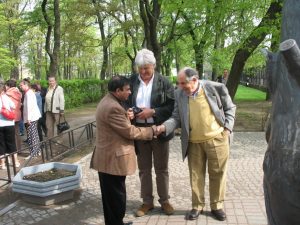
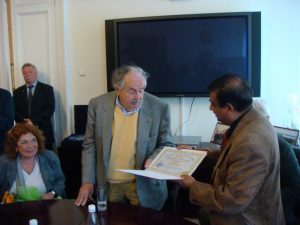
Awarding Grand PhD (Honoris causa degree)
